第35章 CHAPTER 3(10)
In the first place, we may fairly question whether experience has affordedsufficient grounds for an induction. It is scarcely three generations sincewomen, saving very rare exceptions have begun to try their capacity in philosophy,science, or art. It is only in the present generation that their attemptshave been at all numerous; and they are even now extremely few, everywherebut in England and France. It is a relevant question, whether a mind possessingthe requisites of first rate eminence in speculation or creative art couldhave been expected, on the mere calculation of chances, to turn up duringthat lapse of time, among the women whose tastes and personal position admittedof their devoting themselves to these pursuits In all things which therehas yet been time for -- in all but the very highest grades in the scaleof excellence, especially in the department in which they have been longestengaged, literature (both prose and poetry) -- women have done quite as much,have obtained fully as high prizes and as many of them, as could be expectedfrom the length of time and the number of competitors. If we go back to theearlier period when very few women made the attempt, yet some of those fewmade it with distinguished success. The Greeks always accounted Sappho amongtheir great poets; and we may well suppose that Myrtis, said to have beenthe teacher of Pindar, and Corinna, who five times bore away from him theprize of poetry, must at least have had sufficient merit to admit of beingcompared with that great name. Aspasia did not leave any philosophical writings;but it is an admitted fact that Socrates resorted to her for instruction,and avowed himself to have obtained it.
If we consider the works of women in modern times, and contrast them withthose of men, either in the literary or the artistic department, such inferiorityas may be observed resolves itself essentially into one thing: but that isa most material one; deficiency of originality. Not total deficiency; forevery production of mind which is of any substantive value, has an originalityof its own -- is a conception of the mind itself, not a copy of somethingelse. Thoughts original, in the sense of being unborrowed -- of being derivedfrom the thinker's own observations or intellectual processes -- are abundantin the writings of women. But they have not yet produced any of those greatand luminous new ideas which form an era in thought, nor those fundamentallynew conceptions in art, which open a vista of possible effects not beforethought of, and found a new school. Their compositions are mostly groundedon the existing fund of thought, and their creations do-not deviate widelyfrom existing types. This is the sort of inferiority which their works manifest: for in point of execution, in the detailed application of thought, and theperfection of style, there is no inferiority. Our best novelists in pointof composition, and of the management of detail, have mostly been women;and there is not in all modern literature a more eloquent vehicle of thoughtthan the style of Madame de Stael, nor, as a specimen of purely artisticexcellence, anything superior to the prose of Madame Sand, whose style actsupon the nervous system like a symphony of Haydn or Mozart. High originalityof conception is, as I have said, what is chiefly wanting. And now to examineif there is any manner in which this deficiency can be accounted for.